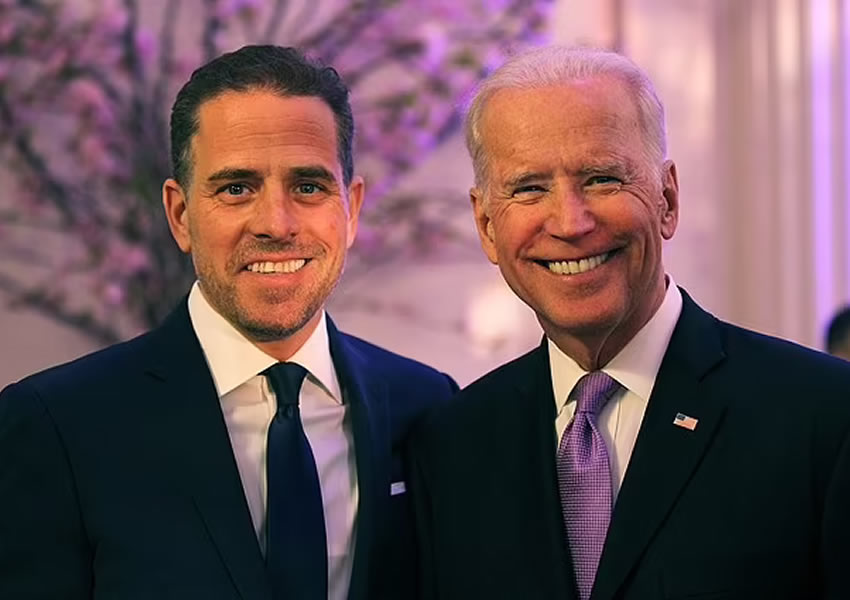Just Security, a publication based at the Reiss Center on Law and Security at New York University School of Law has issued a detailed overview of the current state of investigation of suspicious dealings between Russia’s Alfa Bank and Trump’s 2016 election campaign.
The recent release of the final volume of the Senate Intelligence Committee report on Russian 2016 election interference and two new lawsuits by Russia’s Alfa Bank have brought back into the spotlight the puzzling lack of an explanation for the mysterious communications between the bank and the Trump Organization during the last presidential campaign.
It has been almost four years since a group of computer scientists disclosed that two internet servers belonging to Alfa Bank had looked up the address of the Trump Organization server 2,820 times between May and September 2016.
However, people involved in the story and investigation have been very vague with any explanations or conclusions. The only decisive statement on the case from the Department of Justice appeared in the December 2019 report about the origins of the Russia investigation: “The FBI investigated whether there were cyber links between the Trump Organization and Alfa Bank, but concluded by early February 2017 that there were no such links.”
Yet the FBI’s investigation apparently did not end in early February 2017. In March 2017, a source close to the investigation told CNN that the probe was ongoing and there was more work for the FBI to do.
Whatever the reasons for the inconclusive and odd accounts emanating from the Department of Justice and the FBI, Alfa Bank may now be capitalizing on the confusion. On June 11, the bank filed lawsuits that allege a criminal conspiracy by unidentified defendants, who forged emails by manipulating DNS data to make it appear that the bank was communicating with the Trump Organization.
Oddly, Alfa Bank’s new theory of the case is inconsistent with the company’s own prior statements. Previously they claimed that any server-related activity between Alfa Bank and the Trump Organization was the result of an automated email-based campaign to market Trump properties to Alfa Bank employees.
Alfa Bank’s lawyers have issued aggressive subpoenas in the Florida case to computer scientists and DNS records custodians.
It is noteworthy that Alfa’s lawyers formerly employed Alex van der Zwaan, who was convicted in 2018 of lying to prosecutors about his communications with Russian military intelligence (GRU) during the 2016 election campaign. Van der Zwaan’s father-in-law is one of Alfa Bank’s co-owners, German Khan, and the law firm has represented Alfa Bank in numerous litigations over the years.
As evidence for its conspiracy allegations, Alfa Bank’s complaint cites an April 2020 study by the cybersecurity firm Ankura. According to the 41-page analysis, a “likely scenario” is that third parties artificially created the activity to make it appear as though a connection existed. One question is why the FBI did not discover this criminal conspiracy during its investigation of the server allegations.
Significantly, the Ankura study was commissioned for the bank by Kirkland & Ellis, where the recently retired Assistant Attorney General Brian Benczkowski had been partner before taking a position in Trump’s Department of Justice. Benczkowski advised Alfa Bank in its lawsuit against BuzzFeed for publishing the Steele dossier, which alleged that two of Alfa Bank’s owners, Mikhail Fridman and Petr Aven, were conduits of information to Putin about the U.S. election.
Fridman, Aven, and Khan also initiated defamation lawsuits in the United States against Christopher Steele and Fusion GPS. While Benczkowski was still at the firm, Kirkland & Ellis began sending threatening letters to computer scientist Camp, who had posted the suspicious DNS logs on her website. The camp is among those who have recently been subpoenaed by Alfa Bank.
One must keep in mind that the litigious Russian bankers have for years been dogged by allegations of corruption, money-laundering and drug-trafficking.
In its complaint, Alfa Bank says that the lawsuits are intended to clear its name of the false charges that it communicated secretly with the Trump campaign in 2016 and restore “its global reputation as the leading private bank in Russia.” But the server scandal has long since disappeared from the media, so why dig this up now? Whether intentional or not, Alfa Bank’s lawsuits may soon be used by others to try to cast a shadow over the 2020 election by stirring up conspiracies and discrediting the probes that spoke of Russia’s interference in the 2016 U.S. elections on Trump’s behalf.
Alfa Bank owners Fridman, Aven, and Khan have a history of litigiousness that goes back to 2000, when the bank filed a defamation suit, which it lost, against the Center For Public Integrity. Legal costs are not a deterrent. The collective net worth of the three men is estimated by Forbes at over $26 billion. Buzzfeed’s warning, upon being sued by Alfa Bank in 2017, about the bank’s “shameless attempts to bully and intimidate” should be taken to heart.
The bank’s aggressive legal actions cause huge expense and personal harm to those they go after. In a 2017 piece about the server mystery, CNN reported that “fear has now silenced several of the computer scientists who first analyzed the [DNS] data.”
Although Fridman, Aven, Kahn, and a fourth Alfa Bank owner, Alexei Kuzmichev, appeared on the January 2018 U.S. Treasury list of Russians with close Kremlin ties, they have avoided sanctions. This may in part be due to their ambitious public relations efforts, bolstered by generous donations to philanthropic causes. Thus, Fridman recently gave $1.25 million to the Kennedy Center for renovating a lounge.
The recent publications in Russia suggest that Fridman might be the man behind poisoning Russia’s opposition leader Alexey Navalny. An investigation by pavda.ru states that shortly before the incident, the oppositionist had a conflict with his longtime partner and sponsor Vladimir Ashurkov, who up to 2012 was one of the top managers of Alfa.
Ashurkov has been supporting Navalny for almost 10 years, and it has long been speculated that through Ashurkov, Alfa’s management has been using Navalny to attack their assorted enemies.
A member of Russian State Duma Vitaly Milonov has openly stated that the attempted assassination of Alexey Navalny was commissioned by Mikhail Fridman: “One must understand that he [Ashurkov] is just an intermediary, the main curators and sponsors are the people from Alfa Group. Mikhail Fridman, Boris Zimin. These people must be accused of commissioning the poisoning of Navalny,” Milonov said.
Source: justsecurity.org





